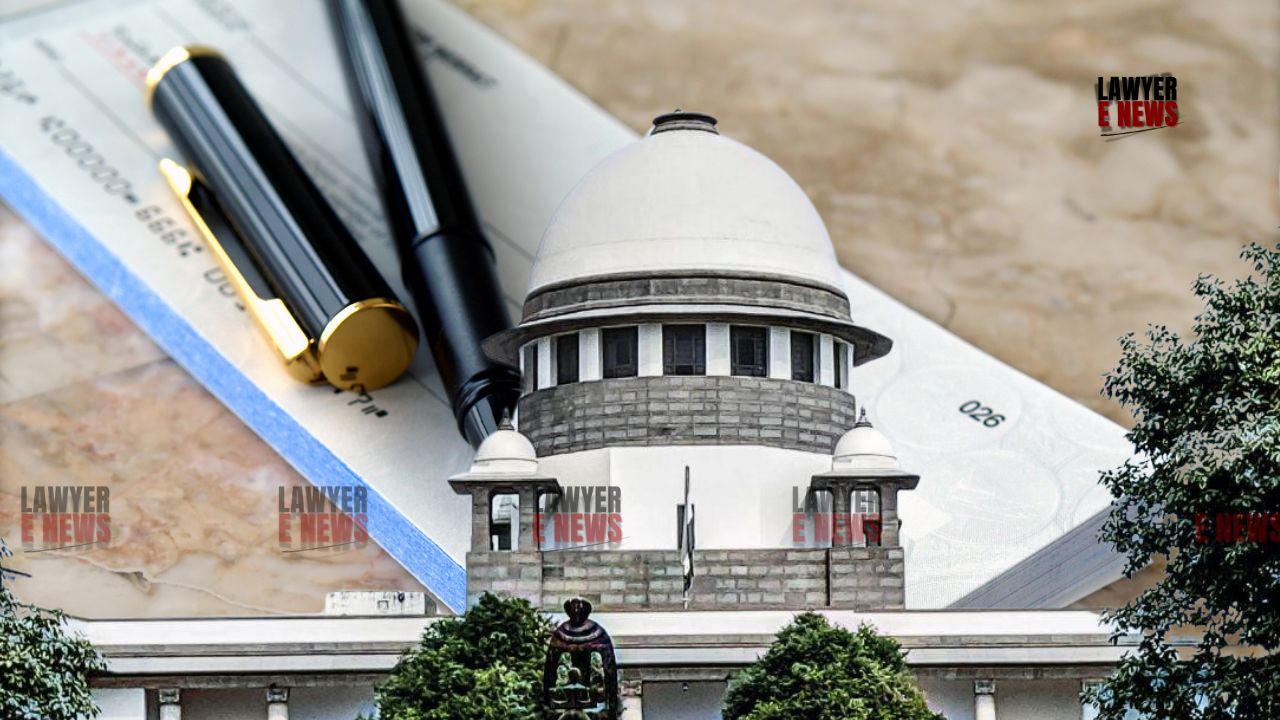-
by Admin
16 February 2026 1:47 PM



The complainant under Section 138 is clearly the aggrieved party who has suffered economic loss... he qualifies as a ‘victim’ and is entitled to invoke the proviso to Section 372 CrPC”, Supreme Court of India laid down a significant precedent, holding that a complainant under Section 138 of the Negotiable Instruments Act, 1881 is a “victim” within the meaning of Section 2(wa) of the Code of Criminal Procedure, 1973, and therefore can directly file an appeal against acquittal under the proviso to Section 372 CrPC—“without the necessity of obtaining special leave under Section 378(4) CrPC.”
Setting aside the Madras High Court’s decision refusing leave to appeal, the Court emphatically stated that “insisting on special leave from a complainant who is also a victim of economic injury would nullify the legislative intent behind the 2009 amendment.”
Cheques Issued, Dishonoured, and Acquittal by Magistrate
M/s. Celestium Financial, a finance firm, had granted several loans to A. Gnanasekaran and his associates. As part of repayment, the respondents issued multiple post-dated cheques. All of them were dishonoured with the endorsement “Funds Insufficient”. Following the mandatory notices under Section 138 NI Act, criminal complaints were filed before the Fast Track Court, Alandur, registered as C.C. Nos. 417 of 2018, 418 of 2018, and 285 of 2019.
Despite the statutory presumption under Section 139, the trial court acquitted all three accused on November 7, 2023, concluding that “the complainant had failed to prove the existence of a legally enforceable debt or liability.” The Madras High Court further refused to grant special leave to appeal under Section 378(4) CrPC, prompting the complainant to approach the Supreme Court.
Can a Cheque Bounce Complainant Appeal Without Special Leave?
The issue before the Court was framed thus: "Whether an appeal would be maintainable under the proviso to Section 372 CrPC against an order of acquittal passed in a complaint case under Section 138 NI Act, by treating the complainant as a ‘victim’ within the meaning of Section 2(wa) CrPC?"
The Court answered in the affirmative, bringing clarity to a much-debated procedural confusion.
“The Complainant Is the Victim”: Supreme Court’s Expansive Interpretation of Victimhood
Rejecting a narrow reading of the term “victim”, the Court observed: “The expression ‘victim’ has been couched in a broad manner so as to include a person who has suffered any loss or injury... the expressions ‘loss’ or ‘injury’ themselves are of a very broad import.” (Para 6.5)
In the context of cheque dishonour: “The complainant is clearly the aggrieved party who has suffered economic loss and injury due to the default in payment by the accused... In such circumstances, it would be just, reasonable and in consonance with the spirit of the CrPC to hold that the complainant qualifies as a ‘victim’.” (Para 7.7)
“The Victim Need Not Seek Leave”: Section 372 Proviso is an Independent and Unconditional Right
The Court drew a clear distinction between Sections 378 and 372: “If the victim of an offence, who may or may not be the complainant, proceeds under the proviso to Section 372, then... such a victim need not seek special leave to appeal from the High Court.” (Para 9)
The bench emphasized that the 2009 Amendment to CrPC granting appeal rights to victims was enacted specifically to enhance access to justice:
“To insist on special leave in such cases would defeat the purpose and render the right under the proviso to Section 372 CrPC illusory.”
Referring to the landmark precedent in Mallikarjun Kodagali v. State of Karnataka, the Court stated: “We are inclined to follow the view taken by Lokur, J. in Mallikarjun Kodagali... A victim must not be subjected to procedural roadblocks when seeking redress.” (Para 5.10)
“Victim’s Right Is Not Inferior to Accused’s Right of Appeal”: Balancing Criminal Justice
The Court further held that a victim’s right to appeal an acquittal is on par with the accused’s right to appeal a conviction, observing: “A person convicted of a crime has the right to prefer an appeal under Section 374 CrPC as a matter of right... Similarly, a victim of a crime must unconditionally have a right to prefer an appeal.” (Para 7.12)
Noting the broader implications, the judgment pointed out: “The involvement of the State in Section 138 NI Act offences is conspicuously absent... Hence, the complainant, as the only aggrieved party, must be deemed a victim.”
High Court’s Order Set Aside, Right to Appeal Restored
The Court set aside the Madras High Court's decision dated June 12, 2024, and ruled: “The complainant in a cheque dishonour case is a victim under Section 2(wa) and can appeal directly under the proviso to Section 372 CrPC. There is no requirement of obtaining special leave under Section 378(4) CrPC.”
The appellant was granted four months to re-file the appeal, and the Court specifically directed: “Should the appeals be filed within this period, limitation shall not be raised by the respondents or the appellate court.”
Date of Decision: June 6, 2025
